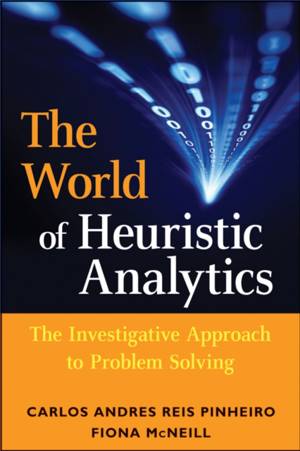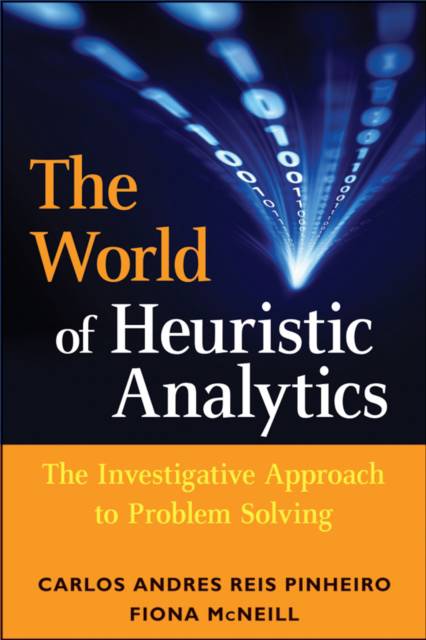
- Retrait gratuit dans votre magasin Club
- 7.000.000 titres dans notre catalogue
- Payer en toute sécurité
- Toujours un magasin près de chez vous
- Retrait gratuit dans votre magasin Club
- 7.000.0000 titres dans notre catalogue
- Payer en toute sécurité
- Toujours un magasin près de chez vous
Heuristics in Analytics (SAS)
A Practical Perspective of What Influences Our Analytical World
Carlos Andre Reis Pinheiro, Fiona McNeillDescription
Heuristics in Analytics presents an approach to analysis that accounts for the randomness of business and the competitive marketplace, creating a model that more accurately reflects the scenario at hand. With an emphasis on the importance of proper analytical tools, the book describes the analytical process from exploratory analysis through model developments, to deployments and possible outcomes. Beginning with an introduction to heuristic concepts, readers will find heuristics applied to statistics and probability, mathematics, stochastic, and artificial intelligence models, ending with the knowledge applications that solve business problems. Case studies illustrate the everyday application and implication of the techniques presented, while the heuristic approach is integrated into analytical modeling, graph analysis, text analytics, and more.
Robust analytics has become crucial in the corporate environment, and randomness plays an enormous role in business and the competitive marketplace. Failing to account for randomness can steer a model in an entirely wrong direction, negatively affecting the final outcome and potentially devastating the bottom line. Heuristics in Analytics describes how the heuristic characteristics of analysis can be overcome with problem design, math and statistics, helping readers to:
- Realize just how random the world is, and how unplanned events can affect analysis
- Integrate heuristic and analytical approaches to modeling and problem solving
- Discover how graph analysis is applied in real-world scenarios around the globe
- Apply analytical knowledge to customer behavior, insolvency prevention, fraud detection, and more
- Understand how text analytics can be applied to increase the business knowledge
Every single factor, no matter how large or how small, must be taken into account when modeling a scenario or event--even the unknowns. The presence or absence of even a single detail can dramatically alter eventual outcomes. From raw data to final report, Heuristics in Analytics contains the information analysts need to improve accuracy, and ultimately, predictive, and descriptive power.
Spécifications
Parties prenantes
- Auteur(s) :
- Editeur:
Contenu
- Nombre de pages :
- 256
- Langue:
- Anglais
- Collection :
Caractéristiques
- EAN:
- 9781118347607
- Date de parution :
- 03-03-14
- Format:
- Livre relié
- Format numérique:
- Genaaid
- Dimensions :
- 155 mm x 231 mm
- Poids :
- 430 g

Les avis
Nous publions uniquement les avis qui respectent les conditions requises. Consultez nos conditions pour les avis.






